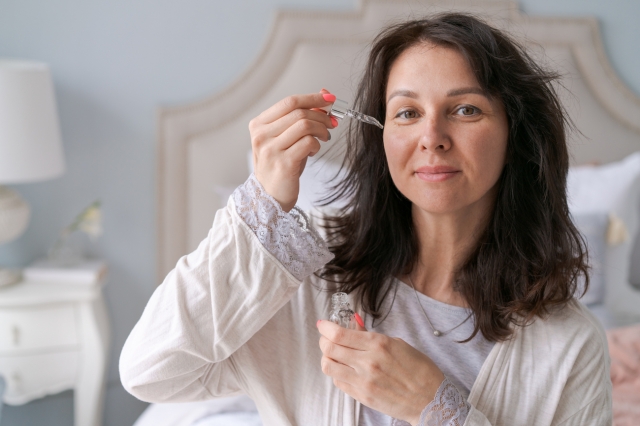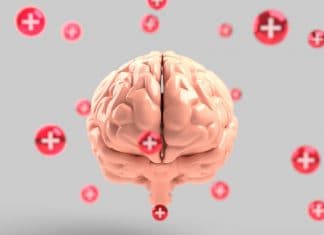As we age, our body's natural hormone production dwindles, potentially leading to a range of age-related health issues and an acceleration of the aging process. Hormone replacement therapy (HRT) promises a resurgence in vitality, potentially turning back the clock on biological aging. By delving into the intricacies of HRT, one might uncover how it could be the key to not only managing symptoms associated with hormonal decline but also possibly extending one's health span. Below, we explore the burgeoning relationship between hormone therapy and biological aging.
Unlocking the Secrets of Youth: Hormone Replacement Therapy and Aging

The pursuit of youthfulness has led many to explore hormone replacement therapy as a modern solution to counter aging. By replenishing diminishing hormones like estrogen and testosterone, HRT helps maintain skin elasticity, bone density, and muscle mass, offering a potential way to combat visible signs of aging. Studies suggest it could also enhance cognitive sharpness, making it a holistic approach to age-related changes.
Hormone replacement therapy isn't one-size-fits-all and requires careful supervision. Personalized treatment plans and regular monitoring by healthcare professionals are essential to ensure safety and effectiveness, minimizing the risk of adverse effects while maximizing its potential benefits.
Estrogen and Testosterone: Vital Hormones in Aging Process Management
Hormonal aging is a complex issue involving estrogen and testosterone, which play a significant role in overall health. Estrogen is crucial for maintaining bone strength, cardiovascular health, and brain function in women, while testosterone can lead to decreased muscle mass, lower energy levels, and mood changes in men.
Hormone therapy (HRT) can stabilize or elevate these hormone levels, alleviating symptoms associated with these declines. HRT can help maintain a more youthful physiology by intervening in the natural depletion of these hormones. The decision to use HRT must be based on a thorough evaluation of an individual's health status, as differences in metabolic responses may result in greater benefits or risks. Precision in treatment and careful monitoring are essential for managing aging effects.
Scientific Insights: How Hormone Replacement Therapy Impacts Longevity
Hormone replacement therapy (HRT) has been linked to increased longevity, with some studies suggesting it can reduce the incidence of age-related diseases like cardiovascular disease and dementia. The biological mechanisms behind these benefits are still being unraveled. HRT may also help reduce chronic stressors associated with aging, potentially leading to a longer, healthier life.
It is crucial to consider the methodologies of these studies and the potential risks of other health complications. The intricacies of HRT's contribution to longevity are nuanced and depend on factors like dosage, duration, and individual patient health. It remains a highly personalized treatment with long-term effects that warrant further scientific exploration.
Addressing Menopause and Andropause: HRT for Age-Related Hormonal Declines

Menopause and andropause can be challenging periods, with symptoms like hot flashes, mood swings, and sexual dysfunction impacting daily life. Hormonal replacement therapy (HRT) can help address age-related hormonal declines, providing relief and restoring normalcy. For women navigating menopause, HRT can effectively manage symptoms by supplementing estrogen levels, a comprehensive approach to aging.
Men experiencing andropause may find HRT helpful in overshadowing physical and psychological challenges, improving libido and mental clarity, leading to improved overall health and longevity. HRT is not a standalone solution, and a balanced diet, exercise, and regular health screenings are essential for managing aging. In this holistic context, HRT is a complementary approach to wellness, complementing other health factors.
Safety and Efficacy: Understanding the Risks and Benefits of Hormone Replacement Therapy
Hormone replacement therapy (HRT) is a potentially beneficial treatment for aging populations, but it comes with potential side effects and risks, such as blood clots and certain types of cancer. The efficacy of HRT is highly individualized, with factors like genetics, pre-existing conditions, and lifestyle choices determining its benefits. Working closely with healthcare experts is crucial for safety and success.
Regular follow-ups and medical evaluations are essential to gauge the body's response to hormone supplementation and adjust treatment accordingly. A careful calculation of the benefit-to-risk ratio is necessary to determine if HRT is a safe and effective option for an individual's unique circumstances. Engaging in an informed dialogue with a healthcare provider is the best way to understand if HRT is a safe and effective option for an individual's unique circumstances.
Overall, hormone replacement therapy presents an intriguing avenue for slowing biological aging and improving the quality of life for aging adults. With a personalized approach and careful monitoring, HRT has the potential to offer significant benefits. Each individual must weigh these benefits against the risks, in consultation with their healthcare provider, to make an informed decision about their aging journey.






